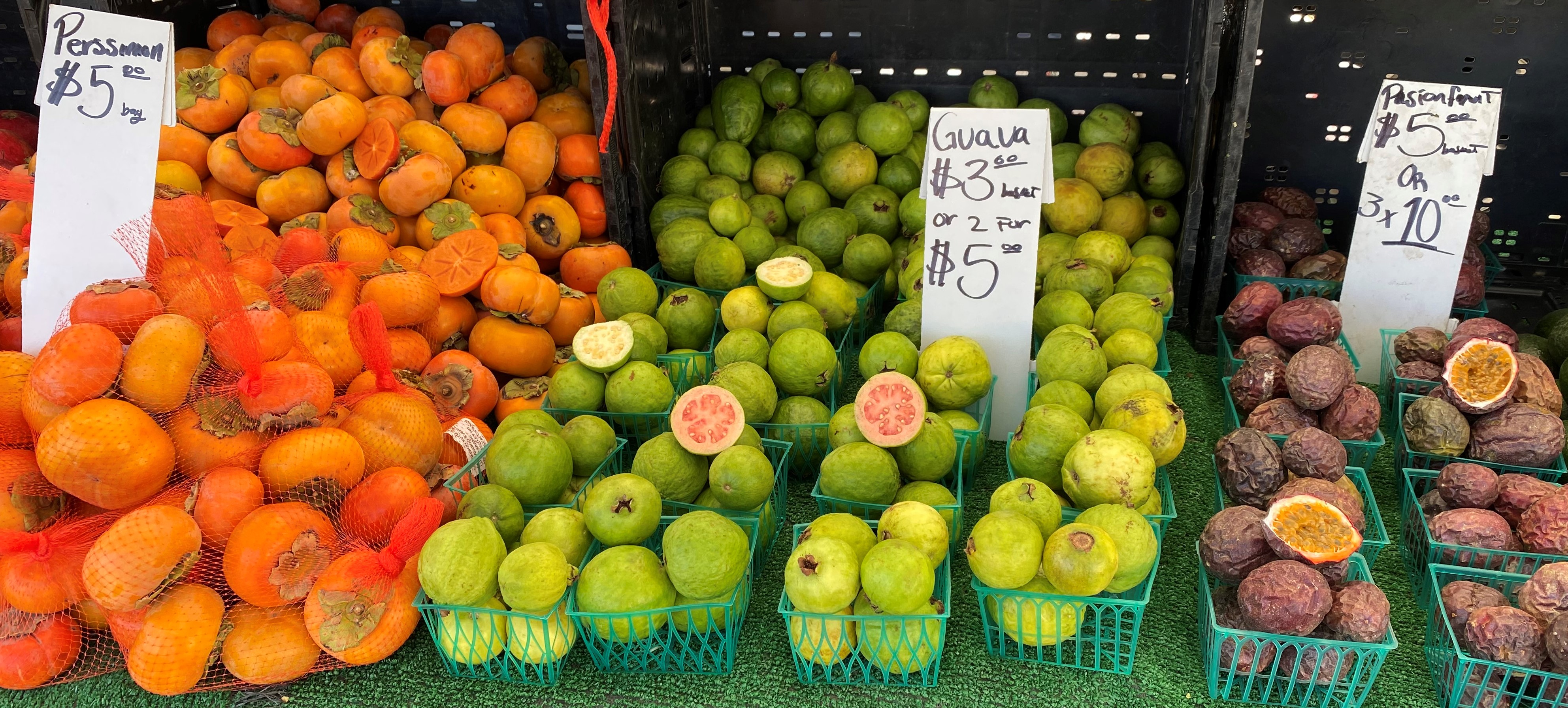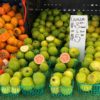Hermosa Beach and Manhattan Beach Farmers’ Markets
May 14, 2021 2:14 pm16 Reasons to Shop at the Hermosa Beach and Manhattan Beach Farmers’ Markets
We are extremely fortunate, that here in the South Bay, we can find a local farmers’ market almost any day of the week. Manhattan Beach has one Tuesday, El Segundo or Redondo Beach on Thursday, Hermosa Beach on Friday, and Torrance on Saturday, Riviera Village, or Palos Verdes on Sunday. What is so great about a farmers’ market you say?
Social and Fun – That’s 2!
Not only is visiting the farmers’ market a fun activity for yourself or the whole family, but you will also, no doubt, run into or meet other members of your own community. Some of the larger farmers’ markets even offer dining and/or entertainment so you can make a day of it.
Educational
Many farmers’ markets offer classes, workshops, and activities. Even if you don’t partake in these events, learning about new foods, how and where they are grown, why, which foods are in season, etc. makes it not only fun but also educational.
Affordable
For the sheer nutrition, you get from farmers’ market produce compared to supermarket produce, it’s a really good value. Grocery stores tend to charge an arm and a leg for organic fruits and vegetables. At the farmers’ market, however, they are typically not much more expensive than conventionally grown produce, and the benefits to your health are likely to save you even more money on healthcare expenses over the long term.
Farm Fresh
Fruits and vegetables, you find at the grocery store are often picked before they are ripe because it will still be several days before they hit the supermarket isles. It ships in refrigerated trucks, possibly from thousands of miles away. In some cases, like the tomato, for instance, refrigeration causes them to lose some of the substances that contribute to their flavor. Farmers’ market produce, on the other hand, is in most cases, picked by the owner of the stand that morning, so you know the food is as fresh as you can get it outside of growing it yourself.
Ripe
I don’t know how many times I have taken a quick trip to the grocery store for something like an avocado, that I need for a recipe or just because I had a hankering, only to find that they had what I wanted but it wasn’t ready to eat. Some grocery stores are a little better at this but the produce at the farmers’ market is, again, generally picked at the pinnacle of ripeness when the plants’ natural sugars are at their peak.
Better Tasting Produce
Because they pick it at the right time, it’s incredibly fresh and not only tastes better, but it also provides the best nutrition possible. Give it a try! Produce from the farmers’ market almost always tastes better. If you start adding farmers’ market produce to your cooking, you’ll be amazed at the difference in flavor and texture.
More Nutritious
Peek at the produce found at the farmers’ market and compare the vivid colors to produce at the grocery store. Did you know that the more vivid colors in fruits and vegetables reflect the nutrients they contain? The supermarket produce usually pales in comparison, so you can see with your own eyes how much more nutritious the fruits and vegetables are. Many local farmers cultivate extremely nutritious produce through their careful farming methods.
Seasonal
There’s some movement in the United States towards a more seasonal style of eating where one eats what is locally available in season. Some nutritionists and scientists will say that eating seasonally available foods is better for you because humans ate seasonal produce for thousands of years before refrigerated shipping changed all that. Still, eating produce in season only makes sense. Lighter fruits and vegetables are available seasonally in the spring and summer, while heartier winter vegetables like squash and parsnips provide sustenance for the cooler autumn and winter months.
Variety
The farmers’ market offers a vast array of fresh, ripe, and seasonal fruits and vegetables. Industrial farms tend to grow only a few varieties of popular vegetables. Small local farms, on the other hand, tend to favor variety, offering fruits and vegetables you just won’t be able to find at the supermarket.
Several farmers’ markets also have fresh ready-made food and products that you may not ever have tried and don’t know how to make. They also bring in crafts and locally handmade items. You will be surprised by the treasure you can find!
Organic and Non-GMO
Many farmers participating in local farmers’ markets use organic methods to grow their produce. Most will label it so you can be sure you are buying chemical-free products. They are also more likely to use non-modified seeds. Organic farming is better for the soil, the environment, and your body.
Provenance
When you shop at the farmers’ market, you can talk with the farm stand workers to learn about the farm’s growing and processing practices. In many cases, you can even visit the farms to see how they grow and handle the produce you are serving to your family. You can know where your food has been.
Support of Local Economies
Most farmers’ market produce is grown within 100 miles of the market. This means that the farms are a source of local jobs and likely to spend the money they make in the local economy.
Support of Local Family Farms
Local family farms have decreased in numbers over the years. Succumbing to the high cost of running a farm and increasingly stiff competition from giant conglomerate-run farms that produce massive amounts of extremely cheap produce. Purchasing fruits and vegetables from farmers’ markets, however, supports local family farms, giving them the valuable capital, they need to keep operating and providing consumers an alternative to mass-produced foods.
Conservation of Fuel
Again, many supermarkets receive their produce from hundreds or thousands of miles away. This involves the significant use of fossil fuels for shipping on refrigerated trucks and rail cars. Famer’s market produce doesn’t have far to get from the farm to your table, significantly reducing the use of fossil fuels. Farmers’ markets also often operate in the open air and thus do not require electricity or heating.
Better for the Environment
Along with conserving fossil fuels, small family farms produce less environmental waste in the form of carbon monoxide, pesticide use, and chemical fertilizers. They are also less likely to utilize giant processing and sorting machines that contribute to environmental decay.
Community is everything these days. We are fortunate for the opportunity to share and be a part of one that cares so much!







